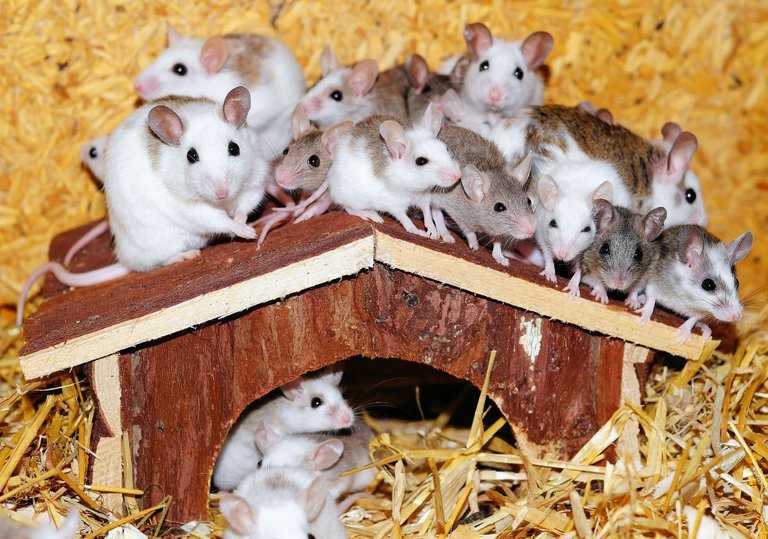Why Do Some Survive COVID Easily And Some Die?
When you look at the statistics, about 80 – 90 % of people who suffer from COVID-19 have only mild symptoms. Then why do the 10 – 20 % face life-threatening conditions?

Image by Karsten Paulick from Pixabay
- Be also sure to check out my other posts and follow me @kralizec and subscribe to my Youtube channel at Kralizec Gaming Youtube Channel
Humanized mice and a type of mice that are hated by the anti-genetic modification crowd. They were created by the immunologist Richard Flavell. Thirteen years ago he proposed to change the immune system of mice to a human system. Initially, these genetically modified mice were supposed to test vaccines but nowadays they are used to test and study many mysteries about the human immune system.
In today's article, we won’t be talking about some Frankenstein-like monster mice. But about mice that had genes added to produce the ACE2 receptor on their cells. Experts among you will immediately know that this is angiotensin – a converting enzyme. For those of you who are laymen just like me, imagine handles on the surface of the cell that allows the virus to attach to the cell. So, the mice are now capable of suffering from the SARS-CoV-2 virus. And their immune system even reacts to the virus in the same way as ours does.
Today, we will focus only on two results from their large study. Both concern real-world applications. More specifically – treatment. A treatment that allowed to save the mice that were close to dying from COVID-19. Both of the treatments are well known. The first is the use of steroids and the second is the intravenous application of monoclonal antibodies.
So, what did the scientists discover before their article was published in the prestigious journal Nature Biotechnology? It can be easily summarized. In the case of the antibodies, the treatment is effective only if it is applied only at the very beginning of the ailment. And it is the opposite with the steroids. They are only effective if applied in later stages of the ailment.
It’s actually logical. The antibodies that specifically target the virus only work when there isn’t much of the virus in the blood. In the later stages of the ailment, when they are many viral particles the antibodies cannot do their work. It’s the opposite of the steroids. They work as immunosuppressants. That is quite undesirable when the ailment is starting. But it does make sense when the inflammation is starting to damage the organs.
Sources:
- If you like the content I’m producing about science maybe you will like the content I produce about gaming as well! Be sure to check out my other posts!
Vitamin D levels seem to have the biggest affect on severity of COVID, which isn't surprising as it seems that vitamin D plays a leading role in regulating the immune system.
A huge portion of the population has vitamin D deficiency; So, when they get COVID19, their immune system produces things like the cytokine storm.
Wikipedia keeps reclassifying Vitamin D. They now call it a "secosteroid"
The association of corticosteroid and the cytokine storm is interesting. The adrenal gland produces corticosteroids which regulate the cytokine release. I suspect that people with damaged adrenal glands are more likely to have a severe reaction to COVID19.
I really wish that the studies about COVID19 concentrated more on immune system health and less on the products that pharmaceuticals can sell to patients.